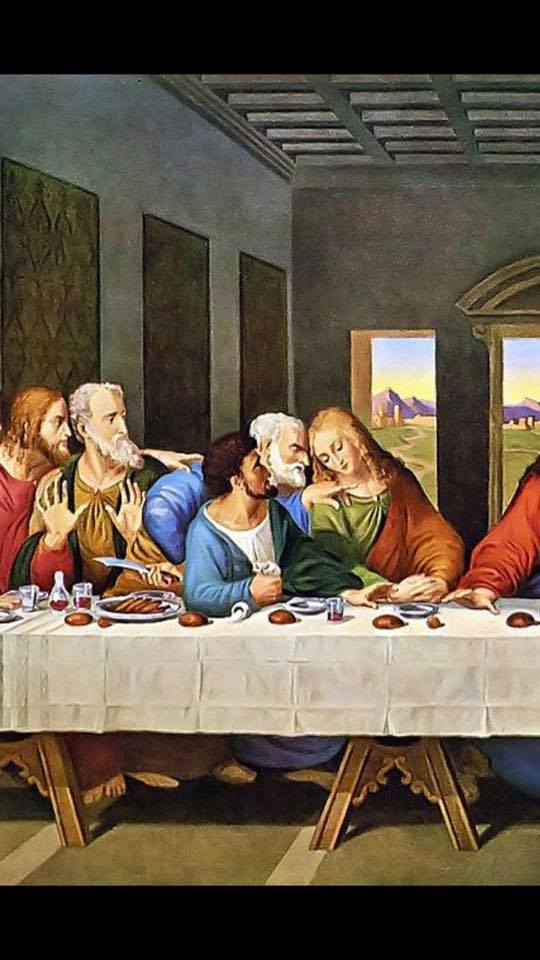Background Passages: Philippians 2:12-18; Philippians 1:9-11; Romans 12:1-2; 2 Corinthians 4:5-6
The eye-opening clarity of images from space captured by the Hubble telescope fascinate me. Every new image of a star cluster or galaxy speaks to the wonder of God’s creation.
On Christmas Day last month, NASA launched the long-anticipated James Webb Telescope which is 100 times more powerful than the Hubble. I watched its launch and subsequent deployment with rapt attention. Larger than a tennis court, the Webb had to be folded in upon itself in multiple layers in order to fit inside the spacecraft fairing.
Once on its way to its orbital position one million miles from earth, the telescope began to unfold. NASA officials said that there were more than 344 single points of failure, any one of which would cripple and render useless the $10 billion project.
This week, the last of those 344 points unfurled successfully. All that remains is for the spacecraft to settle into its orbit.
Once the telescope is carefully calibrated, the infrared telescope will enable us to see more deeply into the universe than we’ve ever seen before. Collecting light from the infrared spectrum, the telescope will see the formation of stars and galaxies almost as old as the universe itself. It promises to teach us much about the universe God created.
Watching the deployment over the past few weeks reminded me of how stunning it was to see the night sky on our farm when I was growing up. On those nights when there was no moon in the sky, the vast number of distant stars making up the Milky Way staggered the mind.
Scientists tell us the Milky Way is 120,000 light years from end to end with more than 200 billion stars. On those clear nights, I wanted to count every star.
I came across a passage of scripture this week in Philippians that encouraged believers in Christ to “shine like stars in the universe.” With that thought, I spent some time looking into what Paul was trying to tell us.
The Apostle Paul found himself under house arrest in Rome. While detained, he received a love offering from the believers in Philippi. Paul took the time to write a letter thanking them for their financial support and give an update on his situation. Then, despite his personal circumstances, he encouraged them to stand firm in their faith in the face of persecution. To rejoice regardless of the circumstances in which they may find themselves.
“Therefore, my dear friends, as you have always obeyed—not only in my presence, but now much more in my absence—continue to work out your salvation with fear and trembling, for it is God who works in you to will and to act according to his good purpose. Do everything without complaining or arguing so that you may become blameless and pure children of God without fault in a crooked and depraved generation, in which you shine like stars in the universe as you hold out the word of life…” (Philippians 2:12-18)
I wonder today how well do I shine? Is my light strong enough to be seen in the darkness that is our world today?
The focal passage begins with one of my favorite biblical words. “Therefore…” If you read the Bible enough, you begin to understand that anytime you see the word therefore it’s time to sit up and pay attention. You’re about to read a word you need to heed.
Our therefore in this passage refers to the preceding verses.
“God exalted him (Jesus) and gave him the name that is above every name, that at the name of Jesus every knee should bow in heaven and on earth and under the earth, and every tongue confess that Jesus Christ is Lord to the glory of God the Father.” (Philippians 1:9-11)
“Therefore…“Paul begins this passage by reminding the Philippian church that because they obeyed the call of salvation and placed their faith and trust in Christ and because they confessed him as Lord of their lives, they must keep on working out their salvation.
To be clear, this does not mean they are to earn their salvation strictly by continued obedience…by works. Rather, it means that the expression of that confession and belief in Christ must be a process of continuous spiritual growth.
Though salvation is a grace gift freely given, a once and forever decision that cannot be stripped away, it should express itself through our lives as an ongoing learning process toward spiritual maturity. To “continue to work out your salvation” is an encouragement to work until our faith is complete…to bring your salvation to fruition.
The Chinese philosopher said every journey begins with the first step. That moment when we give our lives to Christ is the first step of salvation. Paul reminds the believers that salvation is a continuous process of growing in spirit and truth, daily putting into practice all that Jesus taught us through his words and his deeds.
No Christian should remain unchanged by his or her salvation experience. You cannot accept Christ, making no effort to be obedient to his commands, and shine as you ought. Life abundant comes in learning and doing God’s will and “good purpose” for your life each and every day.
In another time and place, Paul said it this way:
“Walk in a manner worthy of the calling to which you have been called. (Ephesians 4:1)
That thought which Paul expressed to the church in Ephesus dovetails well with his thoughts in verse 12. Paul praised the Philippians for their faith and steadfast obedience even when Paul was no longer with them.
Their spiritual growth would enable them to withstand the pressures and persecutions of a “crooked and depraved generation.” Lest we get too high on our own horse, our generation is no better. The world around us is just as crooked and depraved.
The words he spoke to Timothy ring true today.
“For a time will come when people will not put up with sound doctrine. Instead, to suit their own desires, they will gather around them a great number of teachers to say what their itching ears want to hear. They will turn their ears away from the truth and turn aside to myths. But you, keep your head in all situations, endure hardship, do the work of an evangelist, discharge all the duties of your ministry.” (2 Timothy 4:2-5)
Paul’s encouragement to Timothy and to those first century believers is no less of an encouragement to believers today.
When confronted by the wickedness and twisted and convenient doctrine of our world, we must arm ourselves with greater knowledge and understanding of God’s word. Keep working out our salvation. Keep on growing in his word. Keep moving toward spiritual maturity. Keep shining like the stars.
How do we shine like stars to a crooked and depraved generation living in our world? What does living as a child of God look like?
Paul was clear. Look at what he says to the Philippians.
“Do everything without complaining or arguing.”
Paul always chooses his words carefully. The word he uses to express complaining is a word used to describe the people of Israel who murmured against Moses while wondering in the wilderness. It is the utterance of a discontented mob, unhappy with life’s circumstance. When he speaks of arguing, Paul describes useless debates and a life of doubt.
When the world is filled with such discontent, the Christian ought to stand out from the crowd, filled with peace and serenity regardless of life’s circumstance. Trust in the presence of God removes debilitating doubt and useless conversation.
And Paul’s encouragement extends to every activity of life. Note the words, “Do everything…” Every act. Every word. Every relationship. In every circumstance of life Paul says, be at peace with God, with others and with yourself. Be like Christ.
“Be pure and blameless.”
Paul also extends a call to purity. To be above reproach. The Greek word for pure in this passage suggests being unmixed or unadulterated. It was used in Paul’s day to talk about wine or milk that had not been diluted with water. In people, it implies sincerity and honest motives. An absence of guile or deceit. To be blameless in this context is not as much a reference to how others see us, but to how God sees us.
In the Old Testament, it spoke to the quality of the sacrifices offered to God; that they were without blemish, spotless. So, Paul is saying to the believers be an unblemished sacrifice (holy and set apart) in the eyes of God, a word he also spoke to the Romans.
“I urge you, brothers and sisters, in view of God’s mercy, to offer your bodies as a living sacrifice, holy and pleasing to God, this is your true and proper worship. Do not conform to the pattern of this world, but be transformed by the renewing of your mind.” (Romans 12:1-2)
The reason for God calling us to a higher standard of living is the idea behind the old hymn:
“Let others see Jesus in you.
Keep telling the story.
Be faithful and true.
Let others see Jesus in you.”
In other words, be like Christ.
That is how we shine like stars in a darkened world. that is how we live a holy and distinctive life of witness to the saving grace of God to a wicked and depraved generation. This is how we “hold out the word of life.”
The call of God to live differently, to shine like stars, isn’t just to bask in the glow of each other’s light as a body of believers. It is a call to missions. Paul wants the lives of all believers, in word and deed, to draw men and women to him. To draw the world to the abundant life he offers all who believe. It is a missional experience.
In this I hear the words of Paul again directing the Corinthian church to live distinctive lives that point toward Christ…
“For what we preach is not ourselves, but Christ Jesus our Lord, and ourselves as your servants for Jesus’ sake. For God who said, ‘Let light shine in the darkness,’ made his light shine in our hearts to give us the light of the knowledge of God’s glory displayed in the face of Christ.” (2 Corinthians 4:5-6)
Live your life differently than the world around lives. Stand out in the crowd for your positive and loving attitude. Quit fighting. Speak in love. Treat others equitably. Don’t give anyone a reason to dispute your motives or your methods. Be a light in the darkness.
Again, be like Christ.
Wherever you are tonight, walk outside. Turn your face to the heavens and count the stars. Let them serve as a reminder that God has called us to be like Christ…a light in the darkness.
May the joy and peace that God gives his children light the flame within us so we can help but shine like the stars.









